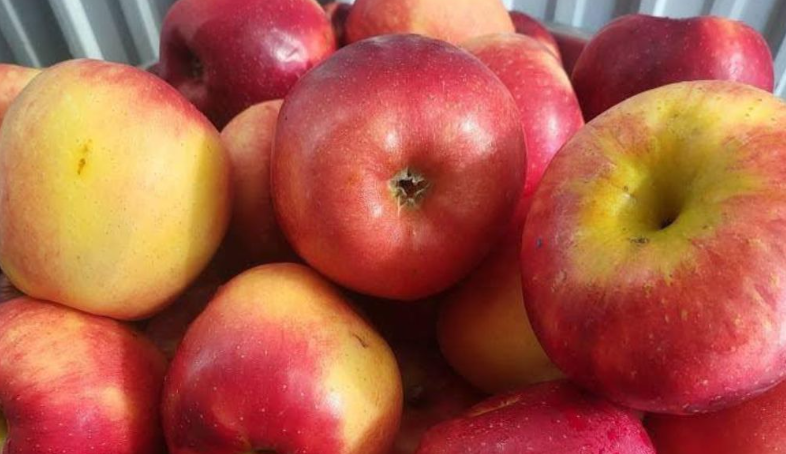It all began in the warm spirit of generosity that fills so many heartfelt moments—with enthusiasm and a sincere wish to lend a hand. A dear friend had extended an invitation to her baby shower, and upon hearing she required assistance with the catering, I responded without a second thought. I devoted a full day to crafting an array of dishes sufficient for fifty attendees, investing hours of dedication, energy, and affection into every detail.
The aromas wafting through my kitchen evoked images of festivity and joy. I pictured the cheerful conversations, the rhythmic melodies playing in the background, and the radiant happiness illuminating her expression. Yet, on the evening prior to the gathering, the situation transformed entirely. My phone lit up with an upbeat notification starting with a friendly “Hey girl!” and concluding with words that sent a wave of shock through me: she was rescinding my invitation due to “space constraints”—while still anticipating the arrival of every item I had meticulously prepared.
In that instant, I found myself gazing at the screen, absorbing the sharp pang of astonishment. I had contributed immensely, and abruptly, my presence at the event was deemed unnecessary. Rather than allowing frustration to guide my reply, I paused to gather my composure and chose to turn this into an opportunity for poise and self-respect. I crafted a courteous response, expressing gratitude for the initial welcome and extending warm wishes for a memorable occasion.
Following that, I included a straightforward statement: given that I would no longer be participating, I planned to retain the prepared meals and distribute them among those who would genuinely cherish the gesture. My words carried no hint of mockery or resentment—only serene assurance.
The following afternoon, rather than transporting platters of food to a venue where my efforts were undervalued, I transformed my own living space into a haven of hospitality. I reached out to several nearby residents and acquaintances, proposing an impromptu midday feast. Before long, my dining area buzzed with animated discussions, the gentle sounds of utensils meeting plates, and an abundance of shared anecdotes.
The exact spread I had assembled for an individual who had overlooked the depth of my contribution evolved into a vibrant tribute to authentic bonds and mutual appreciation. This experience reinforced a valuable insight: fulfillment arises not from flawless arrangements or external validation, but from offering one’s best with open-hearted intention, coupled with the wisdom to establish limits when that intention encounters disregard.
As the sun dipped lower that day, yet another text appeared from her, laced with bewilderment and a touch of irritation regarding the absence of the expected deliveries. I reiterated my earlier position with composure and courtesy, maintaining a tone of respect throughout. And with that, the matter concluded—no lingering remorse, no unnecessary conflict, simply firm personal boundaries. Reflecting on the sequence of events, I came to understand that no real loss had occurred; instead, I had acquired an invaluable treasure. Authentic generosity flourishes in environments of reciprocal esteem, and at times, articulating a clear “no” represents the most compassionate choice one can make for one’s own well-being.
To delve deeper into this narrative, consider the broader themes of kindness and reciprocity that weave through everyday interactions. Acts of service, like preparing a feast for a celebration, stem from a place of empathy and connection. They build bridges between people, fostering communities where support flows freely. In my case, the baby shower represented more than a social event; it symbolized the milestones we honor together—new life, new beginnings, and the collective excitement that accompanies them.
Baby showers, in particular, carry a special charm. They often feature themed decorations, games that spark laughter, and gifts that promise future adventures for the little one on the way. Guests arrive with handmade items, store-bought essentials, or heartfelt cards, all contributing to a tapestry of care. Food plays a central role, too, with tables laden with finger sandwiches, fresh salads, decadent desserts, and perhaps a signature punch that ties everything together. My contributions were meant to enhance that atmosphere, providing nourishment that would fuel the joy and conversations.
Yet, the twist in expectations highlighted a common challenge in relationships: the assumption that generosity is limitless without boundaries. When my friend mentioned space issues, it likely stemmed from logistical realities—perhaps the venue had capacity limits, or additional guests were added unexpectedly. Venues for baby showers vary widely, from intimate home settings to rented halls or outdoor gardens. In a home, furniture might need rearranging to accommodate folding chairs and activity stations.
Outdoor events require considerations for weather, seating under tents, and portable tables for refreshments. Regardless of the setting, organizers strive to create an inviting space where everyone feels included. However, the decision to exclude a key contributor while retaining the benefits of their work revealed a mismatch in values. It underscored how planning such events involves not only creativity but also sensitivity to the efforts of others.
Turning the situation around allowed me to host my own gathering, which unfolded with its own unique magic. Inviting neighbors and friends on short notice brought an element of spontaneity that infused the afternoon with energy.
One neighbor, a retired teacher with a knack for storytelling, regaled us with tales from her classroom days, drawing parallels to the anticipation of parenthood. Another friend, an avid gardener, arrived with a bouquet of fresh herbs that complemented the dishes perfectly, adding vibrant colors and scents to the table. The menu, originally designed for the baby shower, included a variety of options to suit different tastes: savory quiches filled with seasonal vegetables, tender roasted meats glazed with herbs, colorful pasta salads tossed with vinaigrette, and an assortment of breads baked fresh that morning.
Desserts featured light fruit tarts, chocolate-dipped treats, and a centerpiece cake adorned with delicate icing flowers. As plates were passed around, conversations deepened, touching on topics from favorite recipes to life lessons learned through giving.
This impromptu lunch also served as a reminder of the importance of community in our daily lives. In neighborhoods, simple acts like sharing a meal can strengthen ties and create lasting memories. Research in social psychology often points to the benefits of communal eating—how it enhances feelings of belonging, reduces stress, and even improves nutritional habits through variety. Studies from institutions like Harvard have explored how shared meals correlate with higher levels of happiness and lower rates of loneliness. In my experience, the clinking of glasses and the warmth of familiar faces transformed what could have been a disappointing day into one filled with gratitude.
Children from the group played in the adjacent room, their giggles providing a soundtrack that echoed the celebratory spirit intended for the original event.
Moreover, this episode prompted reflection on personal growth and the art of setting boundaries. Boundaries are essential frameworks that protect emotional energy and promote healthy dynamics. Psychologists describe them as invisible lines that define what is acceptable in interactions.
Without them, relationships can become imbalanced, leading to resentment or burnout. In friendships, especially long-standing ones, it’s easy to fall into patterns where one person gives more than they receive. Learning to communicate needs clearly, as I did in my response, models maturity and encourages mutual respect. It doesn’t diminish the act of kindness; rather, it ensures that kindness is sustainable. For instance, volunteering time for community events, helping with family obligations, or supporting friends through challenges all thrive when reciprocity is present. When it’s not, redirecting efforts—to a local shelter, a family in need, or even one’s own circle—multiplies the positive impact.
Expanding on the idea of redirecting generosity, imagine the ripple effects of sharing food beyond the intended recipient. Food banks and community kitchens rely on donations to serve those facing hardships. A single prepared meal can provide comfort to someone experiencing food insecurity, offering not only sustenance but a sense of being cared for. Organizations like Meals on Wheels deliver to homebound individuals, ensuring they receive nutritious options regularly. In my neighborhood, there’s a local initiative where excess garden produce or homemade goods are exchanged at a community table. Had I chosen that route, the dishes could have nourished families or seniors, extending the circle of care far beyond a single party.
The original baby shower, from what I gathered, proceeded with alternative arrangements—perhaps store-bought items or contributions from other guests. Events like these often adapt on the fly, with hosts improvising to maintain the flow. Games such as guessing the baby’s arrival date or decorating onesies add interactive fun, while photo booths capture candid moments.
Music playlists curated with upbeat tunes keep the energy high, and favors like personalized candles or seed packets send guests home with tokens of appreciation. Despite the hiccup, the focus remained on celebrating the expectant mother and her journey into parenthood. Pregnancy brings its own array of emotions—excitement mixed with anxiety, physical changes, and preparations for the unknown. Showers provide a supportive space to acknowledge these, surrounded by loved ones offering advice and encouragement.
In contrast to that structured event, my home gathering embraced flexibility. No rigid timeline dictated the pace; people arrived as they could, lingered over coffee, and departed with full hearts. One guest shared a recipe for a herb-infused dip that paired wonderfully with the vegetables, promising to exchange notes later. Another brought a board game that extended the afternoon into evening hours, fostering even more connections.
These organic developments highlight how unplanned moments can yield profound satisfaction. Literature on positive psychology, including works by Martin Seligman, emphasizes “flow” states achieved in social settings where time seems to stand still amid engaging activities.
Ultimately, this story illustrates the empowerment found in reclaiming one’s contributions. By keeping the food and hosting others, I honored my efforts and surrounded myself with appreciation. It taught me that value lies in the intention behind actions, not necessarily in the outcome dictated by others. Friendships evolve over time, and this incident may have reshaped ours, perhaps leading to more balanced interactions in the future or a natural drifting apart. Either way, it affirmed the priority of self-care alongside altruism. Kindness, when paired with discernment, becomes a powerful tool for personal fulfillment.
To further enrich this account, let’s explore related concepts in greater depth. The psychology of giving reveals that altruistic behaviors activate reward centers in the brain, releasing endorphins similar to those from exercise or laughter. Neuroimaging studies show increased activity in areas associated with pleasure and social bonding. However, when giving is exploited, it can lead to compassion fatigue, a state where helpers feel drained. Preventing this involves regular self-assessment and boundary-setting practices, such as journaling gratitudes or discussing experiences with trusted confidants.
In cultural contexts, baby showers vary globally. In some traditions, like those in India, blessings and rituals accompany gift-giving. In Latin American countries, “baby showers” might include lively music and dance. Understanding these differences promotes inclusivity in diverse friend groups. For my preparation, I drew inspiration from family recipes passed down through generations—grandmother’s secret spice blend for the meats, a aunt’s technique for flaky pastry crusts. These elements added layers of heritage to the dishes, making them more than mere food; they were stories on plates.
Hosting at home also allowed for personalization. I arranged fresh flowers from my windowsill garden as centerpieces, lit candles for ambiance, and played a playlist of soothing acoustic tracks. The setup encouraged mingling, with seating arranged in clusters to facilitate small group chats. Cleanup afterward became a communal effort, further bonding the participants. Such details elevate a simple meal into a memorable occasion.
Looking ahead, experiences like this inspire ongoing generosity with awareness. Volunteering for local events, contributing to potlucks, or mentoring others in cooking skills all channel that same helpful spirit productively. Schools often host parent involvement days with shared lunches, hospitals appreciate meal deliveries for staff, and shelters welcome homemade goods. The possibilities are endless, limited only by imagination and availability.
In conclusion, what started as a potential slight blossomed into a lesson of resilience and joy. The food, the laughter, the connections—all endured in a new form. This narrative encourages everyone to give freely yet wisely, to celebrate with those who reciprocate, and to find abundance in redirection. True celebrations honor not only the occasion but the people who make it possible, ensuring that every effort counts toward building a kinder world.







